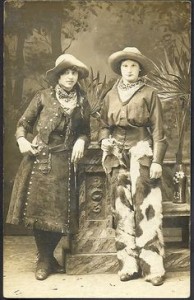
So I’ll be open to submissions from March 15 through March 31 for the Women Destroying Fantasy issue. Here are some of my wants and a couple of things that will turn me off.
- I want fantasy that showcases the amazing emotional range of the genre and the spectrum of forms it can take.
- I’ll want at least one tearjerker and one humorous piece.
- I’ll want something that draws on fairytale or myth, but which does so in an amazing, interesting, and fresh way, and I’m hoping to find something that feels urban fantasy-ish as well, also in a fresh and interesting way.
- Fantasy that often hits well with me: superheroes, non-cutesy talking animals, linguistic-related, the weird.
- I like language: make yours wonderful, but never at the cost of the story.
- Your character should make me care about their fate (and for this issue, probably a female protagonist is, quite frankly, probably going to be a better fit).
- I’ll want at least one piece with an utterly amazing landscape, that immerses me in a fantasy world that delights my heart.
- Diversity does matter to me. It doesn’t trump quality, but when you’re going to be up against the very best, score your points where you can.
I don’t want retellings of D&D adventures. Or pirates. I really don’t like pirates (got exposed to an awful lot of fantasy pirate stories while at Fantasy Magazine) and I’m not particularly fond of zombies. Typos are another big turn-off: proofread your work.
This is not a time to go for the low-hanging fruit or play it safe. I have four, count ’em, four slots. Send me something — but make it the very best you have, something that is unique to your voice, something that you and only you could write.




 A week or so ago we had the orientation session for the slush readers. I gathered them by posting announcements in my newsletter and other social media, but I also tried to reach out to a range of people in order to ask for recommendations in order to ensure I had a diverse pool. We ended up with over a dozen slushreaders, and one of the things I want all of them to take away from the experience is better understanding of stories and how to sort through things.
A week or so ago we had the orientation session for the slush readers. I gathered them by posting announcements in my newsletter and other social media, but I also tried to reach out to a range of people in order to ask for recommendations in order to ensure I had a diverse pool. We ended up with over a dozen slushreaders, and one of the things I want all of them to take away from the experience is better understanding of stories and how to sort through things. The flooring saga continues. One guy came and made the repairs to the subfloor that the flooring people had requested — or so I thought! When the flooring people came back, they weren’t happy with things still, and so the other company is coming back to do that, but can’t get here until the latter part of the month, and since they didn’t understand they needed to level the floor the first time, there’s some additional cost, although they are cutting me a deal on it as an apology. At any rate, someday I will have a usable kitchen, but that time is not now.
The flooring saga continues. One guy came and made the repairs to the subfloor that the flooring people had requested — or so I thought! When the flooring people came back, they weren’t happy with things still, and so the other company is coming back to do that, but can’t get here until the latter part of the month, and since they didn’t understand they needed to level the floor the first time, there’s some additional cost, although they are cutting me a deal on it as an apology. At any rate, someday I will have a usable kitchen, but that time is not now.


8 Responses
Dear Cat: I once sent a light fantasy to Fantasy that you said was very close, but the setup was a little too long. I’ve since trimmed the setup. Can I submit it to WDF?
Sure!
Wonderful! Thanks. 🙂
Sounds amazing, Cat. I will definitely be giving this one a go if I can find a killer idea. 🙂
Thanks so much for putting such specific guidelines. Looking forward to sending you a piece for this awesome anthology.
This sounds awesome, Cat. I’m sure it will be a terrific issue and I’ll look forward to reading it. All of my finished stuff is out at other venues at the moment but if I can get my latest done in time, I’ll send it along.